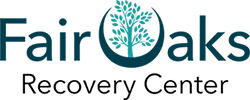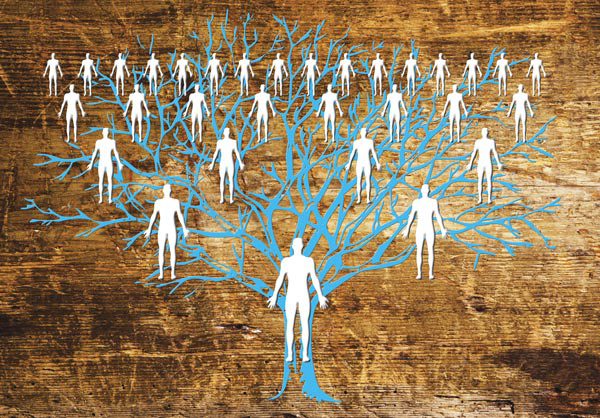Substance abuse often shows up in multiple generations of a family tree. Frequently, misuse of alcohol, prescription meds, or illicit substances has been taking place within a family for a long time before the current generation ever indulged in them.
Nature Versus Nurture
There has been some debate as to whether addiction is a genetic disease or results from learned behavior. The National Institute on Drug Abuse points to three indicators in early family life that are predictive of a child later developing an addiction:
1. The parents or caregivers are not overly attached to the child.
2. Parenting is either poor in quality, inconsistent, or potentially does not happen at all.
3. One or more caregivers use substances.
These factors seem to point to a combination of genetic and environmental factors influencing a person’s tendencies toward substance abuse. One can see how, if a person had a parent who was actively engaged in substance abuse, they might then grow up to become a parent who struggles with addiction themselves, thus perpetuating this cycle.
Family Roles
Not only can a person’s genes and their parents’ behavior impact their likelihood of developing an addiction, but if their family of origin involves substance abuse, they may also find themselves forced into one of the roles that define a dysfunctional family, roles that may influence their adult decisions around substance use:
- The Scapegoat – the person everyone in the family blames and punishes for their collective frustration. This person is labeled “bad” and may suffer from severe emotional and physical repercussions as a result of taking the blame for everything.
- The Hero – the hero is popular in school, with a tendency toward good grades and over-achievement in general. Their job is to make it look like everything is okay at home. They can also easily become the scapegoat.
- The Lost Child – flies under the radar, does not draw any attention to themselves or get into trouble, but they are also not rewarded in any way for making good choices. They are likely to marry someone who is like the addict in their family and may also develop their own addictions later.
- The Mascot – while hiding their own feelings, the mascot learns to diffuse stressful situations with humor. They tend to struggle with understanding their own feelings and may have a hard time with committed relationships when they reach adulthood.
- The Enabler – this person covers up for the person who abuses substances and may give them the tools to keep feeding their addiction, while simultaneously shaming them for their choices and/or denying the addiction-related behaviors are even real at all.
Addictive Personalities
In the past, the term “addictive personality” was commonly used to describe people who seemed more likely to develop addictions.
While it is true that a person who has already experienced one addiction can more easily form addictions to other things, it is also important to note that there is not one single personality trait or type that is definitively linked to substance abuse.
Traits Correlated With Addiction
While having any one attribute is not predictive of a person’s risk for addiction, there are some traits that are more often seen in people who develop substance use disorder. These include:
-
Impulsivity: People who are impulsive tend to act without thinking through the consequences, making them more likely to engage in risky behaviors, including substance abuse and addictive behaviors.
-
Sensation-Seeking: Individuals who seek excitement, novelty, and intense experiences may be more inclined to experiment with substances or behaviors that produce pleasurable sensations.
-
Risk-Taking Behavior: A willingness to take risks without considering potential negative outcomes can contribute to engaging in drug or alcohol misuse and other addictive behaviors.
-
Low Self-Esteem: People with low self-esteem may use substances or addictive behaviors as a way to cope with negative emotions and feelings of inadequacy.
-
Stress and Coping Style: High levels of stress, particularly chronic stress, can increase the risk of addiction. People who have poor coping skills or use substances as a way to manage stress are more vulnerable.
-
Family History: A family history of addiction can be a significant risk factor, suggesting a genetic predisposition to addictive behaviors.
-
Early Exposure: Exposure to addictive substances or behaviors at a young age, including early experimentation with drugs or alcohol, can increase the likelihood of developing an addiction.
-
Mental Health Disorders: Co-occurring mental health disorders, such as depression, anxiety, or ADHD, can increase the risk of addiction. Individuals may use substances to self-medicate and alleviate symptoms.
-
Social Environment: Peer pressure, social acceptance of substance use, and the availability of drugs or alcohol in one’s social circle can play a substantial role in addiction risk.
-
Lack of Social Support: A lack of healthy social support networks can leave individuals feeling isolated and more susceptible to addiction.
-
Genetic Factors: Genetic factors can contribute to addiction vulnerability. Certain genes may make individuals more sensitive to the effects of substances or less able to regulate their impulses.
-
Neurobiological Factors: Differences in brain structure and function, including reward pathways and neurotransmitter systems, can influence addiction risk
Ultimately, substance abuse is a multi-faceted problem. Numerous underlying factors can influence a person’s likelihood of becoming addicted. That is why, at Fair Oaks Recovery Center in California, we practice a whole-person approach to treatment, and we enthusiastically welcome loved ones to participate in the rehabilitation process.



